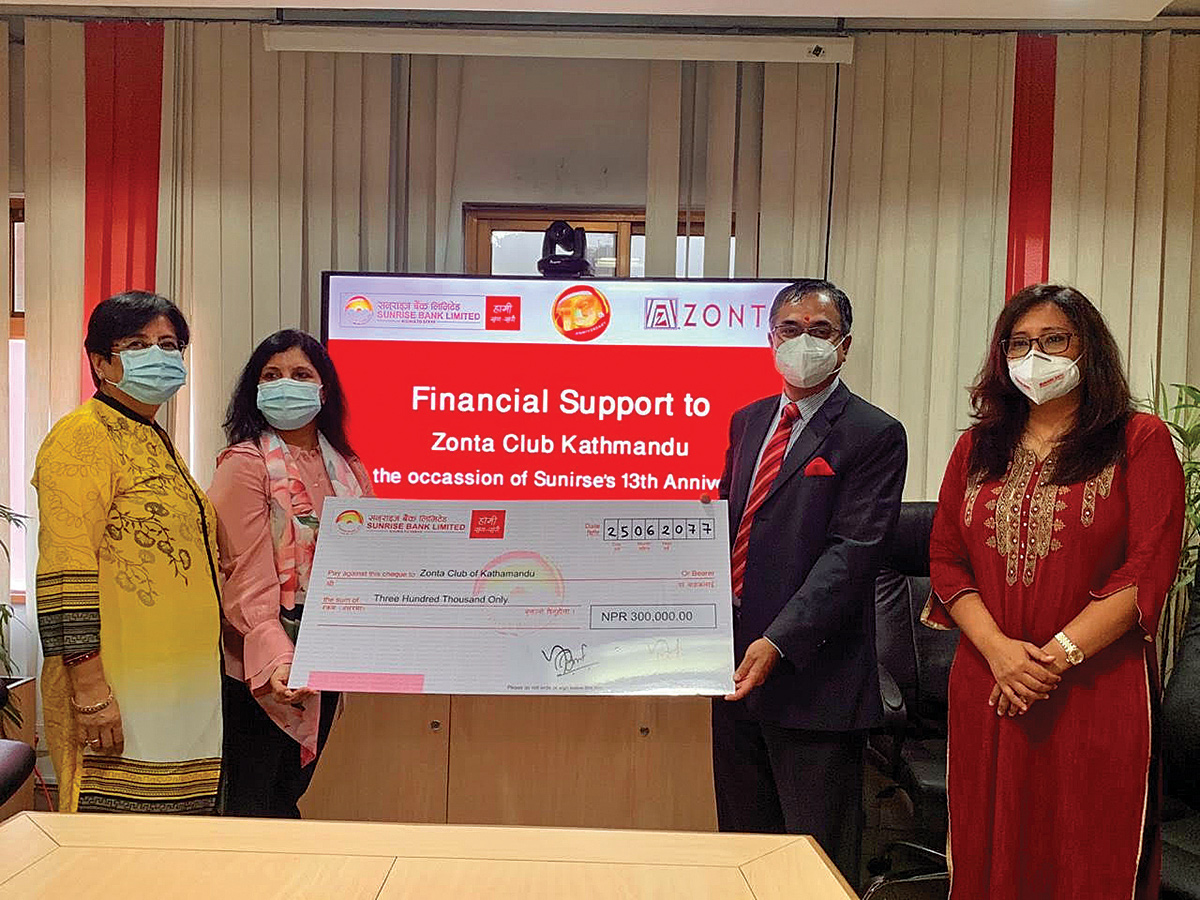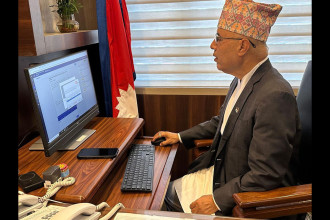
South Asia’s handling of COVID 19 crisis reveals a dysfunctional regional cooperation mechanism to deal with the trans-boundary crisis implying a need for a revitalised regional cooperation to deal with the climate crisis, according to the experts in a virtual meeting organised by South Asia Watch on Trade, Economics and Environment (SAWTEE) in association with Biruni Institute, Afghanistan; Centre for Policy Dialogue (CPD), Bangladesh; Research and Information System for Developing Countries (RIS), India; Sustainable Development Policy Institute (SDPI), Pakistan; and Institute of Policy Studies of Sri Lanka (IPS) on October 13.
The experts also emphasised that Covid 19 has diverted efforts away from climate action which if not corrected will have devastating consequences for the region that remains highly vulnerable to the detrimental impacts of climate change.
Dr.Prabhu Budhathoki, Former Member, National Planning Commission, Kathmandu, highlighted that the current pandemic has made it crystal clear that the regional cooperation mechanism in South Asia does not function well at the time of crisis and hence our governance mechanism has to change if we are to wage an effective fight against the climate change.
Dr. Eklabya Sharma, Deputy Director General, International Centre for Integrated Mountain Development (ICIMOD) Kathmandu, delivering the keynote speech, emphasised that South Asia, primarily given the significant presence of mountain regions, is one of the most vulnerable regions when it comes to climate change. Higher population density and the presence of large number of impoverished populations exacerbate the vulnerabilities in the region. Dr. Sharma further mentioned that the dire effects of climate change are already visible in the region in the forms of increased occurrence of floods, glacial lake outbursts, landslides, heat waves, and a general degradation of the ecosystem, and warned that a sole focus on Covid 19 at the expense of climate issues is the biggest challenge confronting the region.
Citing Pakistan’s experience in dealing with the Covid 19 crisis and lessons learnt through it, Dr.Shafqat Kakakhel, Chair, SDPI, Islamabad and Former Deputy Executive Director, United Nations Environment Programme (UNEP), highlighted four key elements that South Asia has to strengthen to deal with climate change: resilience to deal with disasters; institutional arrangement for domestic, regional, and international coordination; identification of the most vulnerable communities and rapid dispatch of support to them; and effective use of information technology and social media to inform people. Referring to the past regional mechanisms like South Asia Co-operative Environment Programme (SACEP), Delhi Statement on Cooperation in Environment 2009, and Thimphu Statement on Climate Change, Dr. Kakakhel mentioned that SAARC has had many initiatives to foster regional cooperation on climate change issues but poor implementation has rendered them inefficacious.
Dr. Athula Senaratne, Research Fellow and Head of Environment Economic Policy Research, Institute of Policy Studies of Sri Lanka, warned that Covid 19 impacts could crowd out the climate finance for several years and hence slow the developments that had gradually been building up in South Asia. He also pointed out that climate action is currently a peripheral issue in the region and until it becomes a mainstream issue we will not see effective collective responses to deal with the climate crisis.
“The current pandemic has highlighted the interconnected nature of global systemic risk and it has exposed significant vulnerabilities, including in food systems,” mentioned Dr. Lopa Saxena, Research Fellow, Centre for Agroecology, Water and Resilience, Coventry University, UK. To deal with the global crisis engendered by climate change, equitable, sustainable, healthy, and resilient food systems have to be developed, remarked Dr. Saxena. Regional cooperation in local food production systems is vital for bringing about that change, stressed Dr. Saxena.
Discussing Bhutan’s successful response in containing the Covid 19 infections and managing socio-economic repercussions, Dr.Tulsi Gurung, Dean of Academic Affairs, College of Natural Resource, Royal University of Bhutan, emphasised the importance of leadership and governance in dealing with the crisis. “Addressing climate change would also require leadership that can unite citizens within the country and wage effective collaboration at the regional and global level,” mentioned Dr. Gurung.
Published Date: November 19, 2020, 12:00 am
Post Comment
E-Magazine
RELATED B360 National





-1770991037.jpeg)